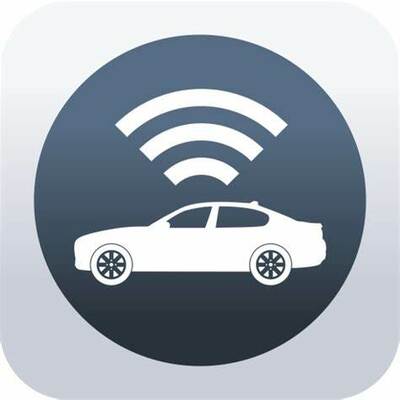TROY, Mich.--Electric vehicle (EV) owners are more than twice as likely to use the manufacturer’s mobile app than owners of a vehicle with an internal combustion engine (ICE), which is good news for automakers looking to increase—and ultimately monetize—their digital service offerings. According to the inaugural J.D. Power U.S. OEM EV App Benchmark Study,℠ released today, 41% of EV owners say they are using their brand’s smartphone app at least every other trip.
J.D. Power is increasing its presence in the field of customer satisfaction with automotive mobile apps, as the industry faces ongoing uncertainty to develop a compelling customer experience. Acknowledging the increase of EV sales and model offerings, the study evaluates the all-important user experience with automakers’ smartphone apps for EV owners.
The OEM EV App Benchmark Study gauges EV owners’ experience with their brand’s mobile app. Insights are derived from surveying EV owners and an expert benchmarking assessment of the most relevant EV mobile apps. Results are based on a standardized evaluation approach relying on more than 300 best practices for vehicle apps that include more than 60 EV-specific attributes.
“These owners are looking for different features in a mobile app,” said Frank Hanley, senior director of global automotive consulting at J.D. Power. “With charging infrastructure still being developed and range anxiety having a significant effect on customer behavior, tasks like checking the battery level and monitoring the charging process are high priorities for EV owners.”
According to the study, the top-performing EV mobile apps are Kia Access, FordPass, Porsche Connect, myChevrolet, and MyHyundai.
Tesla, the U.S. leader in EV sales, ranks sixth in the study. Tesla’s app has not changed significantly for many years, and other manufacturers are offering apps with greater functionality. However, Tesla’s app is resonating well with the brand’s owners and, in terms of speed for remote control functions, the app still proves to be the industry’s benchmark.
Following are key findings of the 2021 study:
- App usage is significantly higher among EV owners: A notable 41% of EV owners say they use their brand’s mobile app more than half the time or every time they drive. Only 19% of ICE owners say they use their brand’s app more than half the time or every time they drive.
- Dedicated EV apps lack functionality: While the scope of features is high with most apps, in some cases, EV owners experience less functionality than apps used by ICE owners. Evaluators noted that both Mazda and Volkswagen removed app functions from their EV apps that were present in their ICE apps.
- Many app executions still overwhelm owners: Manufacturers must remember that while EV owners seek new technology, much of it is still new to most owners. It is key for those apps boasting more features and functionality to show a good usability including an intuitive layout and structure. Also, as many new owners have no experience with electrical units in relation to driving range or the advantages of charging during off-peak hours, it is important to put things in terms that they can understand.
- Willingness to pay for app features remains low: EV owners are even less willing to pay for using a manufacturer’s mobile app than ICE owners. However, owners who say they’re highly satisfied with their app are more likely to consider paying.
“It’s critical that manufacturers devote proper resources to developing apps that truly fit the needs of new EV owners,” said Fabian Chowanetz, manager of automotive consulting at J.D. Power Europe. “Porsche Connect is just one example of a premium brand making up ground after having redesigned its first-generation app. With these automakers on the cusp of launching so many new EV models, they must be ready to adapt their apps to owners’ needs and invest in improving the digital experience. If not, loyalty and retention are at risk.”
The expert benchmarking includes apps from the top 15 brands that sell EVs in the United States and Europe. For the inaugural study, 14 models were evaluated in the United States and 5 in Europe. In addition, almost 600 EV owners in the United States were surveyed in March 2021.
For more information about the Electric Vehicle Mobile App Study, visit https://www.jdpower.com/business/automotive/electric-vehicle-mobile-app-study.
About J.D. Power
J.D. Power is a global leader in consumer insights, advisory services and data and analytics. A pioneer in the use of big data, artificial intelligence (AI) and algorithmic modeling capabilities to understand consumer behavior, J.D. Power has been delivering incisive industry intelligence on customer interactions with brands and products for more than 50 years. The world's leading businesses across major industries rely on J.D. Power to guide their customer-facing strategies.
J.D. Power is headquartered in Troy, Mich., and has offices in North America, Europe and Asia Pacific. To learn more about the company’s business offerings, visit JDPower.com/business. The J.D. Power auto shopping tool can be found at JDPower.com.




